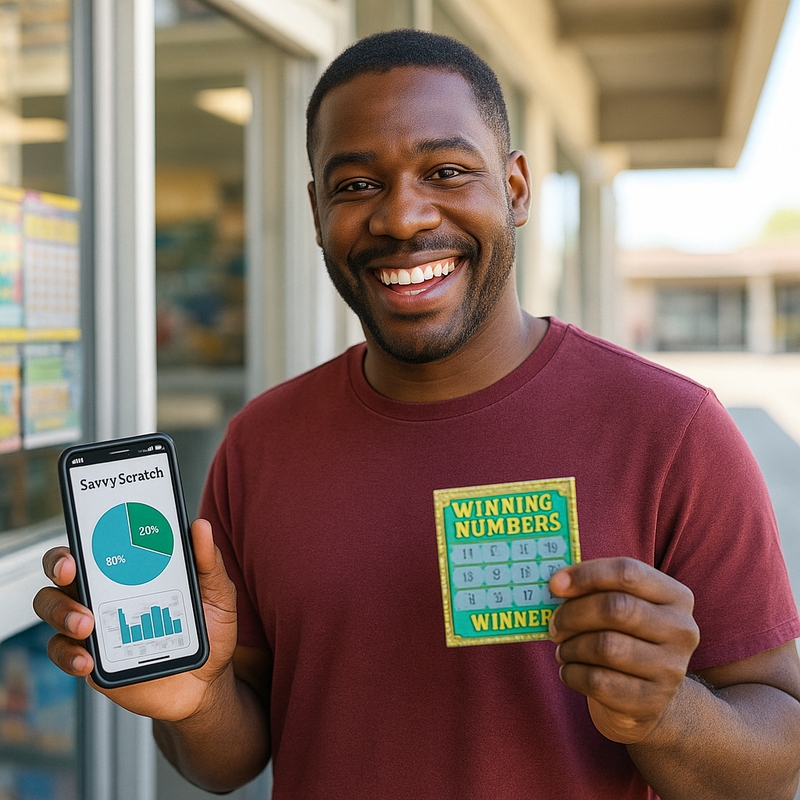
Why Better Lottery Odds Actually Mean Less Waiting Between Jackpots
9/26/2025
Why Better Lottery Odds Actually Mean Less Waiting Between Jackpots
Ever wonder why some scratch-off games feel hot while others feel completely dead? It's not luck or superstition—it's math. And the math is simpler than you think.
The Video Poker Connection
Ask any serious video poker player about hitting a royal flush, and they'll tell you it happens roughly once every 40,000 hands. They might hit one sooner, they might wait longer, but over time, the results always come back to that rate.
Scratch-offs work exactly the same way. They have predictable long-term rates too—they're just hidden behind flashy graphics and marketing. The real difference between playing a "good" game and a "dead" one? You're choosing how long you'll wait for the next big win.
What Does "Less Waiting" Actually Mean?
Think of it this way: every scratch-off game starts with a certain number of jackpots spread across millions of tickets. At launch, if there are 4 jackpots among 8 million tickets, you'd expect to see one jackpot every 2 million tickets sold.
But here's where it gets interesting. As the game progresses:
- Tickets get sold
- Some prizes get claimed
- Others don't
When tickets disappear but jackpots remain, your waiting time shrinks dramatically.
A Real Example (No Heavy Math)
Let's say a game launches with 4 jackpots and 8 million tickets:
- At launch: You'd expect 1 jackpot per 2 million tickets
- Halfway through: 4 million tickets sold, but all 4 jackpots still there—now it's 1 jackpot per 1 million tickets left
- Near the end: Only 1.8 million tickets left, 3 jackpots remaining—now it's 1 jackpot per 600,000 tickets
Same game. Same price. Three times better odds of hitting a big prize.
Why This Matters to You
Most people pick scratch-offs based on pretty designs or which ones are new. But smart players look for games where the math has shifted in their favor.
You're not trying to predict the future or beat randomness—you're simply choosing to play when the waiting time between jackpots is shorter than it was at launch.
How to Actually Use This
Don't worry—you don't need to be a mathematician. Here's the simple approach:
1. Check Before You Buy
Look up your state's remaining prizes data online. Most states publish how many top prizes are left for each game.
2. Do the Quick Comparison
If a game has sold roughly half its tickets but still has most of its jackpots, that's your signal. The waiting time just got cut in half.
3. Play the Best Math, Not Your Favorite Game
When two games cost the same but one has better current odds, choose the better math. Leave sentiment at home.
4. Stay Flexible
The math changes as tickets sell and prizes get claimed. What's hot today might be cold next week. Check regularly and adjust.
5. Keep Simple Records
Track what you play and what you win. Over time, you'll see that targeting better math actually works.
What Not to Do
Don't chase "near misses"—they don't mean you're getting closer to a win.
Don't stick with dead games just because you like them. If the jackpots are gone, no amount of loyalty will bring them back.
Don't confuse small prize odds with jackpot odds—winning $5 back doesn't tell you anything about when the next $50,000 prize will hit.
The Saturday Morning Routine
Want to make this practical? Here's a quick weekend workflow:
Check your state's prize data online
List 3-5 games you're considering
See which ones still have their jackpots but fewer tickets remaining
Play the one with the shortest expected wait time
Stick to your budget
Record what happens
Takes 10 minutes. Gives you a real edge.
The Bottom Line
You can't force a scratch-off to pay out. But you can choose to play when the expected waiting time between big wins is as short as possible.
Video poker players understand this instinctively—they play optimal strategy not to guarantee a royal flush, but to minimize their waiting time for one.
Scratch-off players can do the same thing. The game doesn't change, but the math behind it absolutely does.
If you remember just one thing: Pick the game where you'll wait the least for the next big prize. Everything else is just noise.